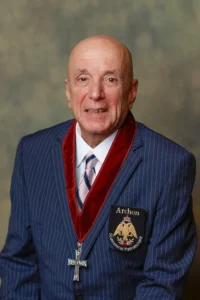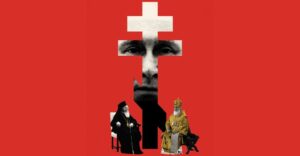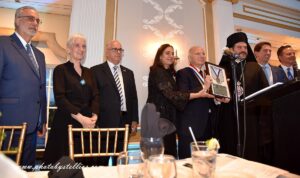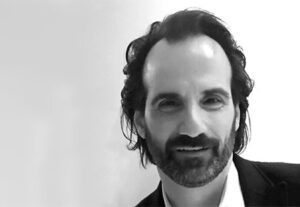The United States Commission on International Religious Freedom (USCIRF) sent the following letter to President Barack Obama regarding his meeting with Turkish Prime Minister Erdogan.
December 4, 2009
The President
The White House
Washington, D.C.
Dear Mr. President,
Dear Mr. President, As you prepare for your upcoming meeting with Turkish Prime Minister Recep Tayyip Erdogan, the U.S. Commission on International Religious Freedom urges you to make freedom of religion a key component of your discussions. In particular, we strongly recommend that, among other issues outlined here, you ask the Prime Minister to commit to a date certain for return of ownership and control of the Halki Seminary to the Ecumenical Patriarchate of the Orthodox Christian Church, and to commit to eliminating the state controls on the internal governance of that Church and the Greek Orthodox community.
During your speech to the Turkish parliament in April you noted that “[f]reedom of religion and expression lead to a strong and vibrant civil society that only strengthens the state,” and that “[a]n enduring commitment to the rule of law is the only way to achieve the security that comes from justice for all people . . . . Robust minority rights let societies benefit from the full measure of contributions from all citizens.” We welcomed those remarks and believe it is most fitting again to raise these important points when you meet with Prime Minister Erdogan.
While Turkey has a democratic government, the state has applied the concept of secularism to fully control religion in public life in a manner that has resulted in many restrictions on freedom of thought, conscience, and religion or belief amounting to violations for persons living in Turkey, for its majority Muslim as well as its minority religious communities. Ensuring greater respect for freedom of religion or belief will foster a strong and secular Turkish state, while protecting the human rights of those living there.
The Turkish government places major restrictions on freedom of religion or belief for its non-Muslim religious minority communities, including state policies and actions that effectively deny them the right to own and maintain property, to train religious clergy, and to offer religious education. These policies have led to the decline—and in some cases virtual disappearance—of some religious minorities on lands they have inhabited for millennia. Several legal cases in 2009 highlight the continued difficulties of Turkish religious minority communities in regaining or retaining their property, including the historic Mor Gabriel Syrian Orthodox Monastery in eastern Turkey. In addition, since the summer of 2009 the Turkish government has refused to allow worship at the Catholic pilgrimage site of St. Paul’s Church in Tarsus. Moreover, although the Ecumenical Patriarchate and Greek Orthodox foundations have received favorable rulings from the European Court, the church has not recovered confiscated communal property, including the orphanage on the island of Buyukada. The Armenian Orthodox Patriarchate’s proposal to open a university department for the Armenian language and the training of clergy has been pending for a number of years, without resolution.
We ask that these points be included in your discussion, and hope you will urge Prime Minister Erdogan to follow-up on his January 2008 statement that the Ecumenical status of the Greek Orthodox Patriarchate should be an internal church issue by granting official recognition to the Ecumenical status of the Patriarch.
We hope, as well, that you will raise the issue of freedom of expression as it pertains to the Muslim community. Despite legislative efforts in early 2008 to remove prohibitions on wearing Islamic headscarves in public institutions, the Turkish Constitutional Court ruled the ban should continue. We hope that the United States will explore ways to cooperate with Turkish authorities on allowing women the freedom to express religious or non-religious views through dress, so as to respect their beliefs and the secular status of the Turkish republic. In addition, the Directorate of Religious Affairs, or the Diyanet, an agency in the Turkish Prime Minister’s office, controls all 80,000 mosques in Turkey and employs all imams as state functionaries. Muslim religious practice and education follow Hanafi doctrine as promulgated by the Diyanet. Individual or communal practice of Islam outside of government-regulated institutions is not permitted; several Muslim groups, such as the Sufi orders, exist but are officially banned.
The Turkish government also does not officially recognize the Alevi, Turkey’s largest minority religious community. In 2007, the European Court of Human Rights ruled that the compulsory religious education in Turkish schools should be optional for Alevis, since the curriculum only taught Sunni Islam. Although that curriculum was modified in 2008, Alevis maintain that the new texts do not accurately present their community. We ask that you encourage the Prime Minister to address this issue and work with the Alevi community regarding their numerous concerns and to grant official status to those Alevi houses of worship that apply for such status.
On a potentially positive note, the Turkish Interior Minister announced in November the formation of a new, independent National Human Rights Institution in 2010, and a separate commission against discrimination. The Commission hopes that the new anti-discrimination commission will examine cases of discrimination, including anti-Semitism, as well as hate crimes based on religious prejudice. So far, according to the 2009 report on hate crimes of the OSCE Office of Democratic Institutions and Human Rights, Turkey has a low rate of prosecution of such crimes. For example, the trial of the alleged killer of noted Armenian journalist Hrant Dink and the separate trial of five alleged killers of three Protestants have continued since 2007; no verdicts are in sight and allegations of official collusion have not been addressed. The Commission hopes that the Turkish authorities will provide police protection if requested, as in the recent case of Turkish-Armenian journalist Sevan Nisanyan.
The Commission placed Turkey on its “Watch List” in May 2009. We very much hope to be able to revisit this designation in the spring, in the event that the Turkish government properly addresses the problems I have identified here. Your meeting, by strongly and specifically raising the issue of freedom of religion or belief, could be a very productive first step in achieving the necessary progress.
Sincerely,
Leonard Leo, Chair
cc: Philip H. Gordon, Assistant Secretary of State for the Bureau of European and Eurasian Affairs Michael H. Posner, Assistant Secretary of State for the Bureau of Democracy, Human Rights, and Labor Samantha Power, Senior Director of Multilateral Affairs, National Security Council







